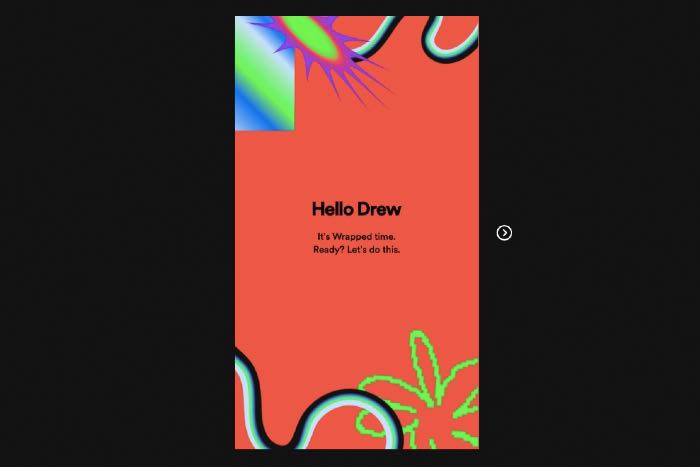
This week, Spotify offered its end-of year analysis of our personal listening information, wrapped up in appealing infographics and set to our most played music. The exercise of seeing the raw data can feel festive or strangely informative.
This week saw a lot of us sharing info on social media. Several friends confirmed that they did, in fact, listen to their favorite artists a lot. Others are bedeviled by the strange mix; especially when they share their account with their kids [no, they aren’t actually fans of “Baby Shark”].
Whether it confirms your own hypothesis or not, the act of analyzing the data of what you did, in fact, listen to is alluring. Because it carries with it the idea that this reveals who we really are.
Defining who we are
It tracks with the old saying: “you are what you eat”—an idea that it doesn’t matter who you think you are, what you actually do says a lot more about you.
Nice guys don’t hurt people. And certainly not repeatedly.
And if you are a parent, you probably are listening to other people’s music. My kid was in Mean Girls a few weeks ago, so guess what we’ve been listening to?
Spotify Wrapped is offering what we actually feed our ears, isn’t it? Yes, this is what we actually listened to. It doesn’t [theoretically] care what we actually like. It is what we chose to listen to.
This is a less objective assessment than we take it for, however. Especially when we have autoplay on, listen to mixes, or in any other way rely on their algorithm to offer us what to listen to.
Mixes are easy compilations of songs the algorithm predicts we will like [which is pretty cool!]. Then when we listen to them once, it treats that song as something we do like. It becomes part of our profile. It is immaterial if we like it or want it or that it otherwise wouldn’t reflect on us at all!
This is why mixes contain the same songs when you might actually want to hear different songs by that artist. The algorithm places these songs in front of you more. So it isn’t predicting you want to listen to them. It ensures that this is the likeliest outcome.
How much algorithms assess behavior and how much they influence it is ultimately immeasurable. But it makes the data, and everything we draw from it, far less reliable.
Multiple identities
Work me prefers ambient, techno, or IDM. It is much easier to work to music you aren’t going to sing along to.
Alone me listens to shoegazing, emo, punk, indie, grunge, pop, trip hop, moperock, and anything I liked in college. It all depends on mood. Or what I’m into.
When the family is around, I keep it clean and vary the vibe depending on who is with me. Taylor Swift, The Promise Ring, or Jimmy Eat World with one kid, New Found Glory or a punk mix with the other.
If we write an algorithm to focus on volume: what we listened to the most: are we actually representing who we are?
Even as a snapshot of who we are, it can only measure how we use the app, not who we are or even what we actually like.
And when you have multiple identities, it really only ever tells you what you turn to the most number of times. Not even the music you most like. Or even the music you ever really wanted to hear.
So, what was my Wrapped this year?

GusGus #1?
Late summer, one of my work mixes played a song from one of their albums I used to listen to a ton in college, Polydistortion. So I decided to look up their discography and listened through it.
The process of researching a group musically takes time. And I appreciated rediscovering a former love.
The best part of the endeavor was finding their 2018 album, Lies Are More Flexible, which is a gorgeous techno album full of texture that I found incredibly engaging. I played it while writing and riding in the car.
I moved onto other things and moved back to some of my regular work mixes or artists. But that experience made the band my most played artist. And several of the tracks from that album were my most played songs of the year.
It’s so odd to say “this is me” when it may be, at best, “this was me in September, 2023.” It doesn’t even describe my listening for the whole year. I mean, I spent all summer listening to emo and pop punk.
There is a limitation to what algorithms can tell us about ourselves. But they do have the power to shape the way we see ourselves. If we let them. After all, it is our data, right?
